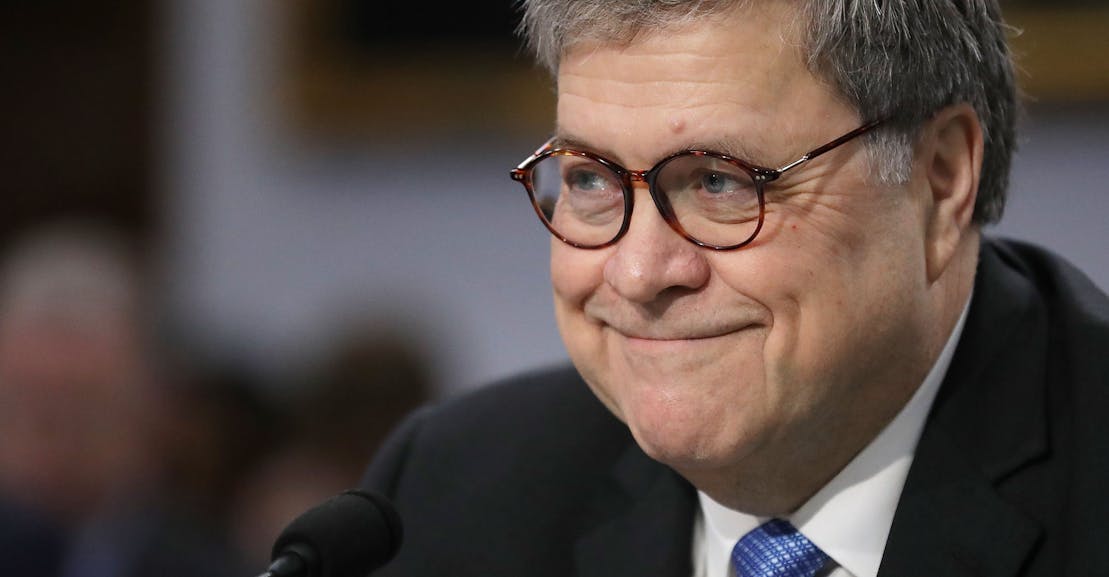On Wednesday afternoon, The Wall Street Journal and The New York Times reported that Attorney General Bill Barr instructed federal prosecutors last week to pursue harsher charges against alleged rioters. Among his reported suggestions was sedition, an archaic and extraordinary offense that implies the defendants were trying to overthrow the federal government. According to the Times, he also floated possible charges against Seattle Mayor Jenny Durkin over policies she pursued toward protests that took place in her city over the summer.
On Wednesday night, Barr delivered a speech at Hillsdale College on “the Constitution and the rule of law” that doubled as a barely disguised defense of his two-year tenure as attorney general. In it, he criticized unnamed Department of Justice officials for pursuing “fuzzy and manipulable criminal prohibitions that maximize our options as prosecutors” in recent years. “Advocating for clear and defined prohibitions will sometimes mean we cannot bring charges against someone whom we believe engaged in questionable conduct,” he explained. “We cannot let our desire to prosecute ‘bad’ people turn us into the functional equivalent of the mad Emperor Caligula, who inscribed criminal laws in tiny script atop a tall pillar where nobody could see them.”
Such is the nature of Bill Barr, who is either the least self-aware man to ever lead the Justice Department or simply the most deceptive attorney general in American history. He perpetually casts himself as nothing more than a fair-minded servant of the law, dispassionately meting out justice without fear or favor. But his actions—shutting down cases against President Donald Trump and his allies, hinting at charges against his perceived foes, and spreading misinformation about U.S. election systems—conclusively disprove that image. And the worst of Barr’s hypocrisy may be yet to come.
The bulk of Barr’s Hillsdale College speech sought to denigrate Justice Department prosecutors who pursued the Russia investigation and similar cases over the past four years. He implicitly compared them to a praetorian guard “that watches over society impervious to the ebbs and flows of politics,” an allusion to the guard’s historical role in deposing and elevating later Roman emperors. “Smart, ambitious lawyers have sought to amass glory by prosecuting prominent public figures since the Roman Republic,” he claimed. “It is utterly unsurprising that prosecutors continue to do so today to the extent the Justice Department’s leaders will permit it.”
To that end, Barr denounced what he described as a “culture of criminalization” when it came to politically oriented offenses. This critique is striking given Barr’s draconian approach to the rest of federal criminal law. But it makes more sense as a defense of his efforts to shield the Russia investigation’s targets from consequences. He pushed for a lighter sentence for Roger Stone, who lied to Congress about the Russia investigation, over the protests and resignations of line prosecutors. He oversaw an attempt to end the prosecution of Michael Flynn, Trump’s former national security adviser, despite Flynn’s guilty pleas for lying to the FBI. In Barr’s implicit telling, he did not provide leniency to Trump’s allies, he merely shielded them from “head-hunters” in the Justice Department ranks.
